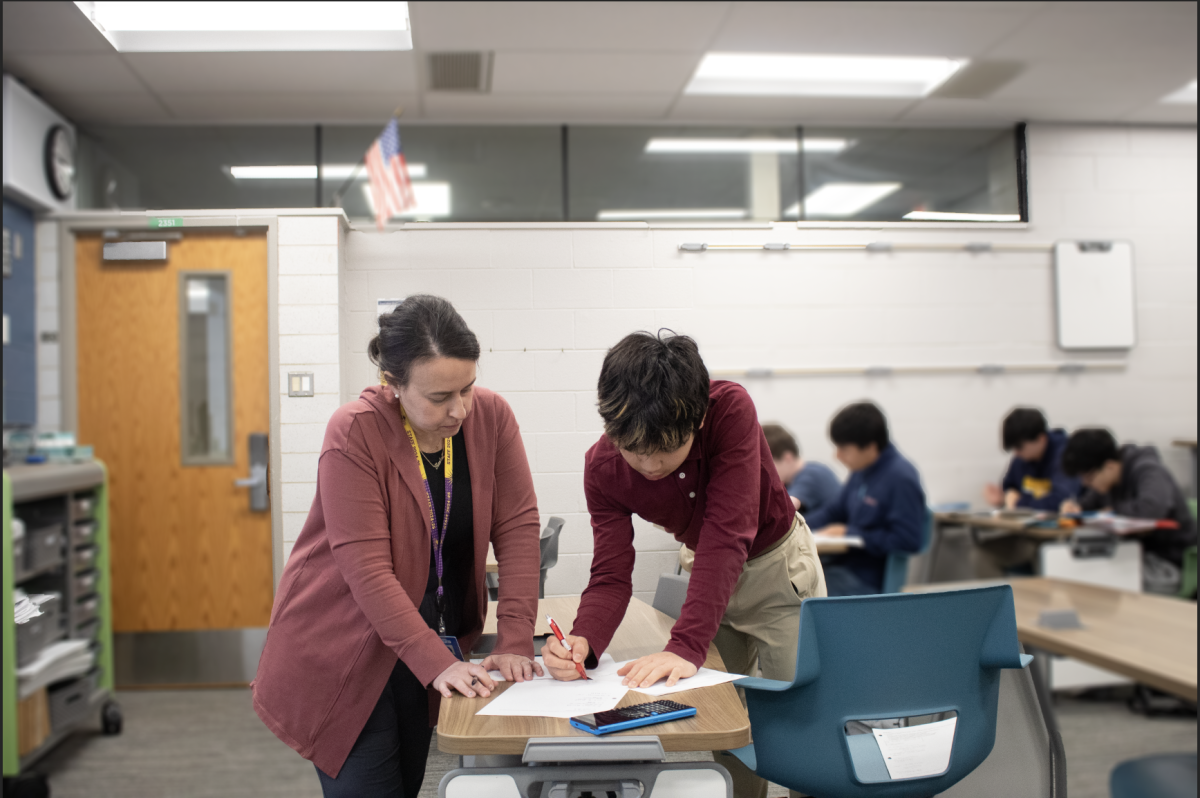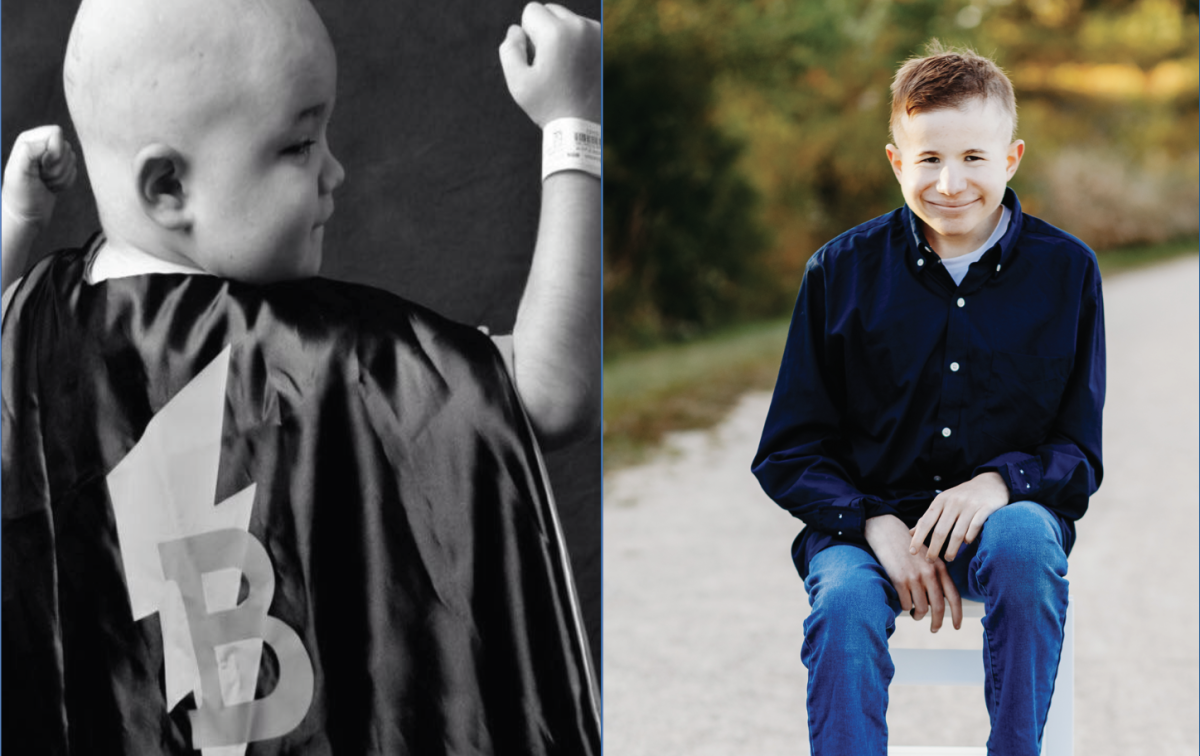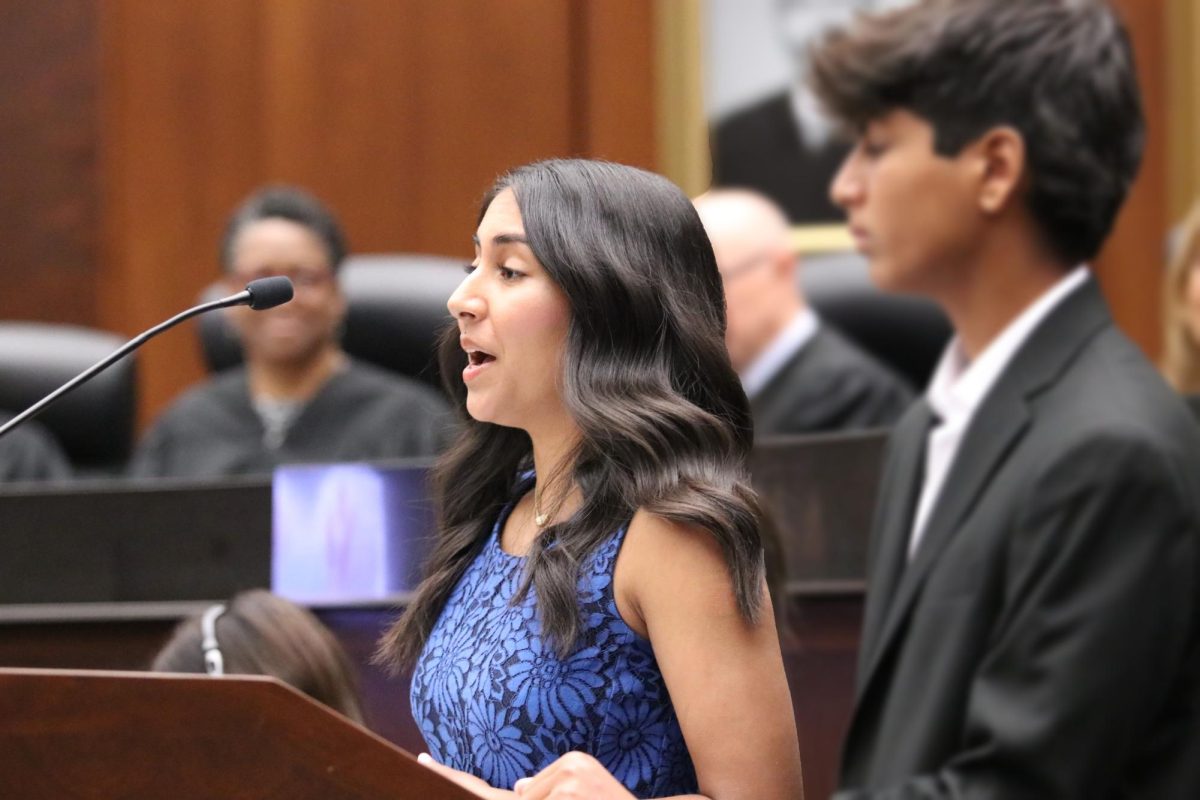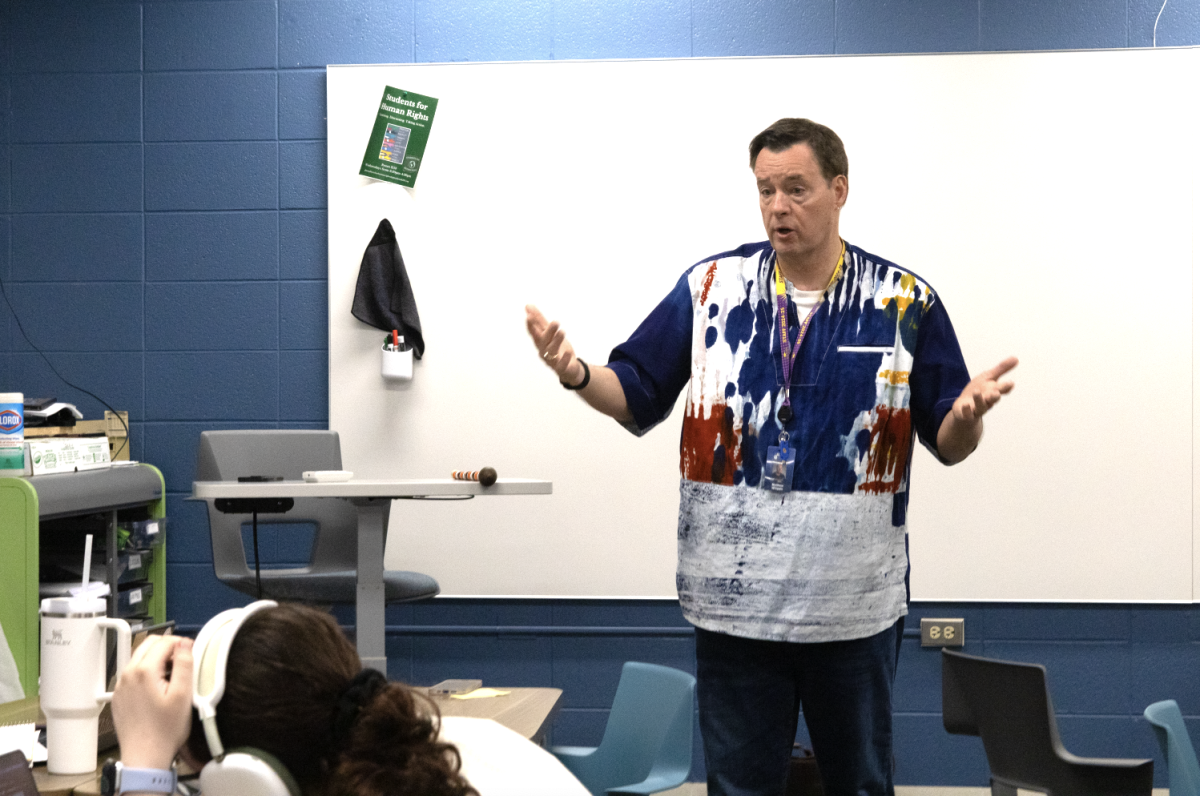Mom’s freshly-baked cookies, or Dad’s “atta boy!” after scoring the winning goal are things many people may take for granted. Unfortunately, some students do not experience these types of parental input because they have lost one or both of their parents. For these students, there is a group here at school.
Three years ago, social worker David Hartman started a group to help students deal with the loss of a parent.
“This particular group came together because all of them experienced a loss,” Hartman explained. “A significant, significant loss. Most of them actually a parent […] It’s mostly to bring kids together who have experienced profound grief. Not necessarily right now, but at some point in the last four or five years.”
The group consists of about 10 girls, all with different family situations. Mary Grace Liard, co-sponsor and social worker, explained the mixture of family backgrounds present in the group.
“A lot of them have lost both parents,” Liard explained. “Some in death […] Others’ parents were either incarcerated, or they just got up and left, or some are not present in their life.”
As sponsors, Hartman explained that it is their job to create the space for these girls to meet and discuss their different experiences.
“It is not always easy to create a space where a group of kids can come together and feel safe,” Hartman stated. “To be able to say the stuff that they feel, [stuff] that’s hard, that’s scary, that’s traumatic, that’s anxiety-producing, that’s sad, so our job as co-facilitators really is to try figure out how to create the space […] how to create an environment that’s consistent, safe, nurturing, loving [and] supportive.”
A loss of a family member, especially a parent, can be very life-altering, according to Hartman. This “grief group”, as both Hartman and Liard called it, is a place for the girls to discuss what they are experiencing in a supportive environment.
“They can learn from each other in a way that I could never help them with,” Hartman explained. “They can be supportive of each other in a way that I could never do, but I have to create the space for them to do it because they wouldn’t otherwise do it on their own.”
Junior Tess Coyle* is currently a member of the group. Her mother left when she was two, and her father has been in and out of jail over the last few years.
Coyle explained that the group created a special bond between her and the other members.
“The people in [the] group are the people you can trust with anything you say; they won’t say anything to anyone,” Coyle said.
One of the main focuses, according to Hartman, is to learn to cope when thrown into different situations.
“You would never know when you’re walking the halls that these kids have experienced these things,” Hartman stated. “Not because they are hiding or pretending, but because they are coping well. They are learning what to do to get through these awful moments in life.”
While part of the group is learning how to cope from other group members, Hartman and Liard also help the girls determine the best ways to distinguish between when emotions can be adapted and when coping is necessary.
“There is coping with your feelings and [then] dealing with the problem,” Hartman explained. “Those are two separate things. How do you cope with your feelings? Those are things we do in group. You call each other, you call your friend, you rationalize it, you distract yourself from it. You again cope; different people cope different ways.”
Coyle described one of the ways group has taught her to cope with her situation.
“In the past, I had some really bad coping skills, but now that I go to group, they help me realize that I don’t really have it as bad as I think,” Coyle explained. “I can just write down [what I’m feeling] in a journal rather than self harm, and I don’t have to let anyone see it. I can just rip it up and throw it away.”
In order to help them cope, as well as learn to cope, Liard and Hartman explained that they create activities for the girls. These activities may include some sort of writing or discussions. Coyle elaborated on one of these activities in particular.
“We wrote on a balloon [the name of a loved one that passed] for our final goodbye and let the balloon go,” Coyle explained. “It was a very touching moment. It helps you cope in a better way.”
Hartman explained the atmosphere at the meetings can be serious but they also have a good time.
“They don’t get together and cry together,” Hartman stated. “They get together and laugh more than anything else.”
The direction of the meetings is controlled by the girls’ feelings and experiences, both in and out of school, that the girls are working through at the time.
“[It] depends on what I know the kids are dealing with and the time of year,” Hartman stated. “Holidays are hard.”
During a meeting, the girls talked about the things that can be most difficult for them at school. One problem they discussed as a group was the constant “annoying” reminder that they are not like other kids.
While a teacher mentioning parent-teacher conferences or parent signatures on permission slips may seem standard or insignificant comment for some, it is a reminder to these girls that their family situations are different.
Group member Hilary Betts* described what she thought was a solution to these constant reminders.
“I think that teachers as well as students just need to be more educated about the issue,” Betts explained. “There are kids out there who don’t really have [traditional] parents, or don’t have parents at all. I think the hardest thing is feeling like you’re the only one in that kind of situation. When teachers and students assume that a student has both parents it’s easier to feel isolated.”
Hartman acknowledged the fact that while the girls sometimes struggle with instances as these, they are aware it is not directed at them.
“They know that teachers don’t mean any malice,” Hartman explained. “They know teachers aren’t intentionally talking about their mom.”
From there, Hartman discusses with other teachers what the girls’ biggest concerns are on a particular topic. Hartman explained that this is one of the obstacles where the girls learn to adapt to the situation by finding the best way to deal with it.
According to Betts, and as discussed by the group, some things still need to be changed, but the school understands overall.
“GBS has always been a really great place, and our students are great,” Betts said. “It’s great that at a school like this people care to improve on difficult things like this.”
Hartman also commended the school for its ability to support its students, especially when they may be experiencing such difficult moments in their lives.
“Our teachers are amazing people,” Hartman stated. “[They] are so supportive of this group, the kids in this group and the ideas in the group.”
*Name has been altered to protect student’s identity.







